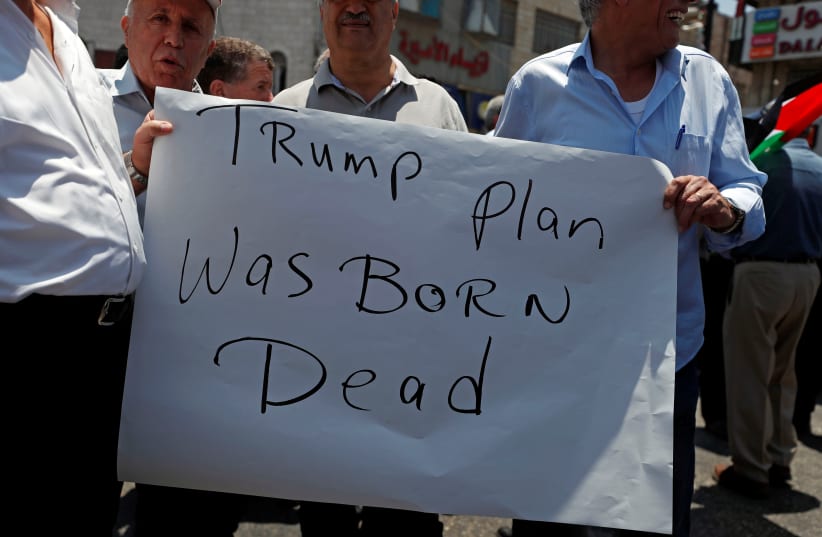The Palestinian Authority continued on Thursday to deride next week’s US-sponsored Bahrain workshop, saying that its goal was to normalize Arab ties with Israel before a full Israeli withdrawal to the 1967 lines.
WAFA quoted Nabil Abu Rudeineh, PA President Mahmoud Abbas’ spokesman, as calling the workshop a “provocation” and saying that “these provocative steps will create an additional tension in a region that is already burning. [The workshop] may lead to a point of no return at many levels.”
Rudeineh said, “Any step must be accepted by the Palestinian people and its leadership, and no single party will succeed in reaching a settlement without the Palestinian leadership.”
The Palestinian Authority is boycotting the conference and, according to diplomatic officials, has both urged and pressured Palestinian businessmen not to attend. Ashraf Jabari, the chairman of the Hebron-based Palestinian Business Network, is the only Palestinian speaker on an early draft of the conference, which will begin Tuesday evening in Manama and continue throughout the day on Wednesday. He will address a session called “Developing a Thriving Local Business Environment.”
Among the other speakers listed on the draft itinerary are Bahrain’s finance minister, US Treasury Secretary Stephen Mnuchin, US President Donald Trump’s adviser and son-in-law Jared Kushner and former British prime minister Tony Blair.
In a rare move, Bahrain – which does not have diplomatic ties with Israel – agreed on Wednesday to allow journalists from six Israeli media outlets – including The Jerusalem Post – into the country to cover the workshop.
US envoy Jason Greenblatt posted a tweet on Thursday, criticizing “despicable” Fatah calls for violence against Israelis to protest the meeting.
“The workshop is about discussing ideas to build better futures for Palestinians,” he wrote. “Fatah seeks violence over the idea of exploring peace & prosperity for the Palestinian people.”
Greenblatt has actively pushed back on Twitter against Palestinian Authority efforts to discredit the “Peace to Prosperity” workshop.
Meanwhile, amid a barrage of tweets and comments over the last few months from former US administration officials predicting the failure of the Bahrain workshop, long-time Mideast negotiator Dennis Ross wrote in Foreign Policy that the workshop “could end up making a real contribution and even potentially lend credence to the broader Trump peace plan.”
Ross wrote that rather than presenting at the conference what is possible over the next decade with infrastructure development and private sector investments, “Kushner and Greenblatt should place the emphasis on a near-term stabilization plan” for Gaza and the West Bank.
“Emphasizing stabilization now just might give the Trump plan a chance later,” he wrote.
